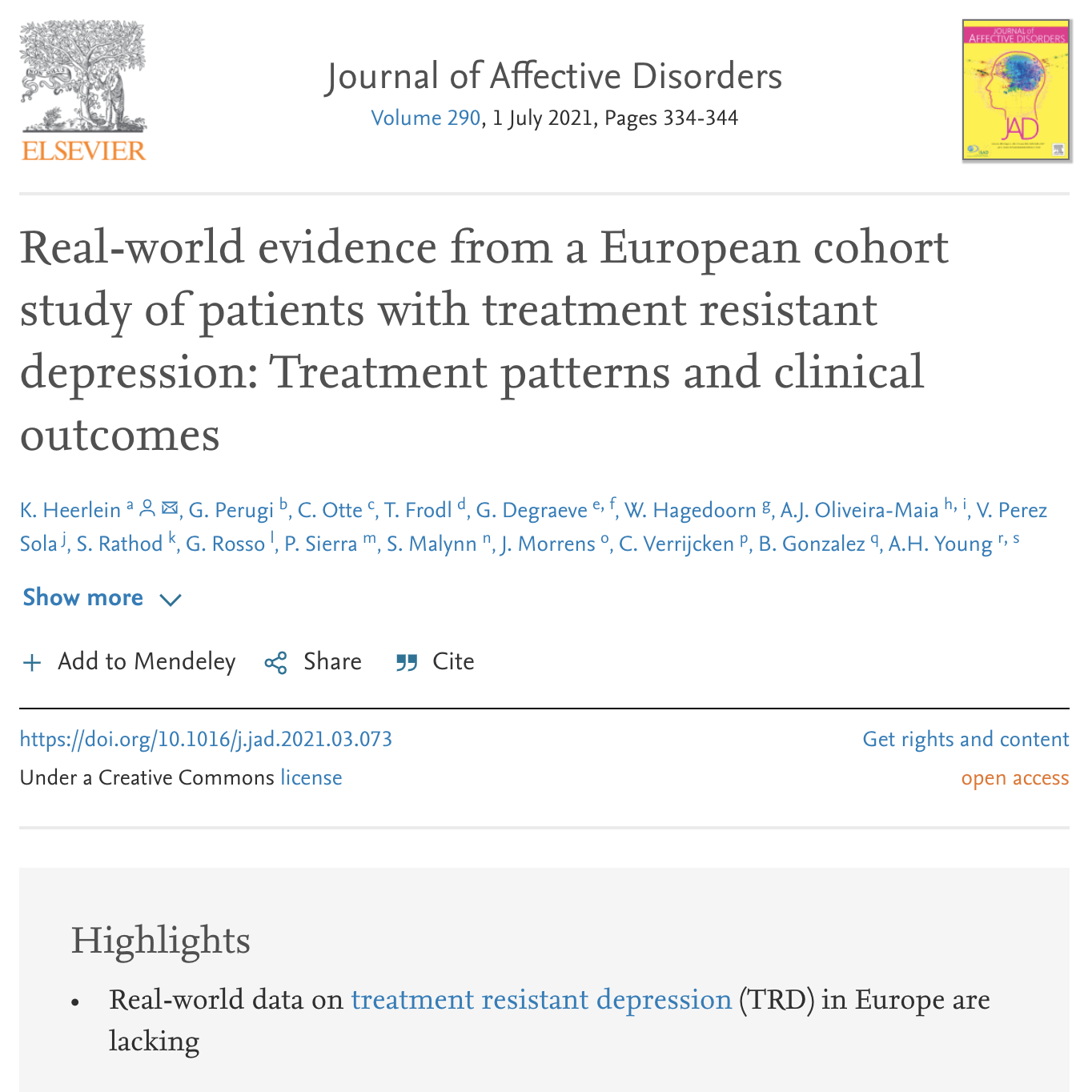Around 15% of people will, at some point in their lives, experience Major Depressive Disorder (MDD), for which there are several treatment paths. However, it is conservatively estimated that 20% of patients experiencing MDD will not respond well to treatment. To put this in real terms, at least 1-in-66 people will experience a depressive episode that is not responsive to at least two different available forms of treatment, and thus classified as having Treatment Resistant Depression (TRD). This puts a strain on the patients involved, their families, the hospitals that treat them, and society in general – both socially and economically. These recent studies aim to quantitatively express the reality of this situation.
The studies, sponsored by Janssen EMEA, had a cohort of 411 eligible patients across seven European countries who were all about to begin treatment for TRD (that is, they did not respond to treatment after two different treatment lines). Patients were assessed on how TRD had affected their quality of life in several areas, focusing on employment, as well as other factors. The results were clear, if unsurprising: the burden for patients suffering with TRD is high, with patients reporting substantial functional impairment and reduced quality of life. Furthermore, across the several participating countries, the treatments that the patients received were ineffective, offering little or no improvement over time.
Many of the patients involved in this study in Portugal were at the Champalimaud Centre for the Unknown. Dr. Albino Oliveira-Maia, head of the Neuropsychiatry Unit at the Champalimaud Centre and National Coordinator of the study in Portugal*, spoke with us about the conclusions: “The results of this study, while expected, highlight that there is a real need to research and develop treatments for patients with TRD, and an understanding that this is a much more common and pressing concern than many realise.”
The studies are available to access through the following links, with a third paper currently under review:
Real-world evidence from a European cohort study of patients with treatment resistant depression: Baseline patient characteristics
Real-world evidence from a European cohort study of patients with treatment-resistant depression: Treatment patterns and clinical outcomes
* Participating Hospitals in Portugal:
Alcafache, João: Centro Hospitalar do Baixo Vouga, E.P.E. – Unidade de Aveiro
Bessa, João: Hospital de Braga
Fonseca, Sofia: Centro Hospitalar de Leiria
Freitas, João: Hospital Magalhães Lemos, EPE
Lara, Elsa: CUF - Infante Santo;
Macedo, António: Centro Hospitalar e Universitário de Coimbra E.P.E - Hospitais da Universidade de Coimbra
Oliveira-Maia, Albino J.: Fundação Champalimaud
Pires, Ana Matos: Unidade Local de Saúde do Baixo Alentejo, EPE
Serra, Madalena: Hospital Espírito Santo, EPE
Von Doellinger, Orlando: Centro Hospitalar do Tâmega e Sousa, EPE - Hospital Padre Américo, Vale do Sousa

